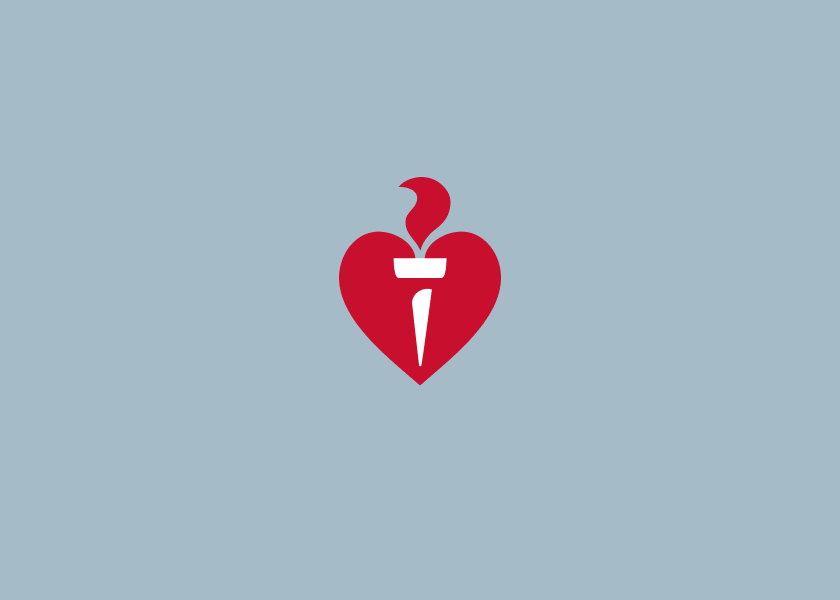
Do you know these five heart disease risk factors? Many people don’t
Blog: 12 May 2022
If you’ve been reading our blog for a while, you will have a fair idea of some of the common risk factors for heart disease. We’re talking about high blood pressure, high cholesterol, diabetes, and lifestyle risk factors like smoking or not being physically active enough. But you might not realise there are also some lesser-known risk factors for heart disease. Knowing if you have any of these risk factors is important, so you can take early steps to reduce your risk and keep your ticker in top nick! (Try saying that three times fast…)
1. Pregnancy conditions
A woman’s body goes through a lot of changes during pregnancy. Which makes sense, given you’re growing a whole new human. During pregnancy the heart and blood vessels adapt in remarkable ways to make sure baby is getting enough oxygen. Did you know the amount of blood pumped out by your heart each minute increases by around 50% during pregnancy? Pretty incredible! There are some conditions in pregnancy that can increase the risk of heart disease later in a woman’s life. These include high blood pressure (hypertension in pregnancy), pre-eclampsia (a condition involving high blood pressure, protein in the pee and a build-up of fluid), and gestational diabetes. If you have had any of these conditions during pregnancy, even if it was quite a few years ago, make sure your doctor knows. It’s important for them (and you!) to keep a close eye on your heart health, including your blood pressure, as you get older.
2. COVID-19
Sorry to say, COVID-19 really is the virus that just keeps on keeping on. Large studies from the US and UK are now showing that people can experience heart complications from the virus long after their initial infection, including an increased risk of heart attack, abnormal heart rhythms and heart failure. The good news though is that most people who have had COVID-19 recover without getting any problems down the track. If you’ve had COVID-19, here are our top tips for staying well:
Make sure you are up to date with your COVID-19 vaccinations. People aged 65 years and over, Aboriginal and/or Torres Strait Islander Peoples aged 50 years and over, and people who have a compromised immune system are now eligible for a fourth dose.
Avoid ‘flurona’. Ah, another gift from the pandemic – new words in our vocabulary. ‘Flurona’ is where a person gets sick with influenza (the flu) and COVID-19 at the same time. The best way to protect yourself is by getting your flu shot too. And why not save yourself a bit of time by getting both shots on one day?
Book in for a Heart Health Check with your GP. This is especially important for people who have had COVID. A Heart Health Check is a 20-minute appointment with your GP to work out your risk of having a heart attack or stroke, and more importantly, what you can do to lower your risk. People aged 45 and over, and Aboriginal and/or Torres Strait Islander Peoples aged 30 and over, are eligible.
3. Serious mental illness
Serious mental illness includes severe anxiety or depression, bipolar disorder and schizophrenia. People with these conditions have a higher risk of heart disease, and the reasons are pretty complex. Medicines to treat mental illnesses are highly effective and can be lifesaving, but some also have side effects like weight gain, which can increase the risk of heart disease. Living with a serious mental illness can also make it harder to have healthy habits, like not getting enough exercise, following a heart-healthy diet and stopping smoking. If you or someone you know has a serious mental illness, having a conversation with your GP about heart health is important. In addition, exercise is not only good for the body but also the mind. If you’re not sure where to start with getting active, you could try our Personal Walking Plans. You can also find great resources about living well with a serious mental illness on the SANE Australia website.
4. Hormones
You’ve probably heard of the female sex hormone oestrogen. Talk about the multi-tasker of hormones! Oestrogen does a lot, from initiating puberty and regulating the menstrual cycle, to keeping a pregnancy going and protecting bone density. And on top of all that, oestrogen also helps keep cholesterol in check.
Research suggests women who have lower exposure to oestrogen during their lifetime can have an increased risk of heart disease. This means that if you have experienced premature menopause (before the age of 40) or early menopause (between the ages of 40 and 45), you could be at higher risk.
Women with polycystic ovary syndrome, a condition affecting the balance of hormones in the body, have an increased risk of overweight/obesity, high blood sugar, high blood pressure and high cholesterol. As a result, women with this condition have an increased risk of heart disease and need to be monitored closely.
5. Rheumatoid arthritis and other chronic inflammatory disorders
Conditions that cause inflammation throughout the whole body, like rheumatoid arthritis, can increase the risk of heart disease. Rheumatoid arthritis is caused by an autoimmune response, where the body’s immune system attacks its own tissues and joints.
The widespread inflammation can affect the arteries, and over time plaque (a fatty substance) builds up inside the artery walls. If this plaque ruptures, a blood clot can form and block a coronary artery, causing a heart attack.
If you have rheumatoid arthritis, or another chronic inflammatory disorder, make sure you see your GP and specialist regularly to keep a close watch on your heart health.
Whatever age you are, if you have any of the risk factors we’ve covered in this blog, it’s a good idea to check in with your GP sooner rather than later. They can help you better understand your risk of heart disease, and together you can work out a plan to keep your heart healthy.
Are you aged 45 and over, or 30 and over if you are an Aboriginal and/or Torres Strait Islander person? You’re eligible for a 20-minute Heart Health Check with your GP. Book an appointment today!
And if you’ve got a spare three minutes, why not give our Heart Age Calculator a go? You can find out how your heart age compares to your actual age.
You might also be interested in...

Know your risk: Family history and heart disease
When you have a family history of a disease, this means a member of your family has, or had that disease.

A short history of Rheumatic heart disease in Australia
RHD continues to disproportionately affect Aboriginal and Torres Strait Islander Peoples. So why are the rates of Aboriginal and Torres Strait Islander Peoples suffering from RHD so high?

How can I eat more fruit and vegetables for a healthy heart?
Fresh fruit and vegetables are some of the best foods to eat for better heart health.
Last updated12 May 2022